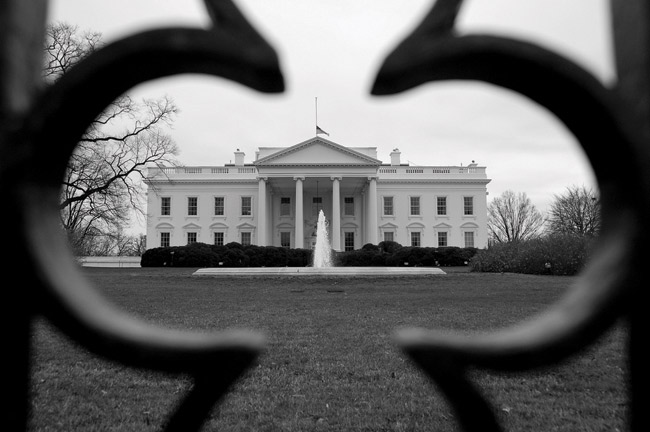
Photo from flickr user <a href="http://www.flickr.com/photos/ableman/" target="blank">Scott Ableman</a> used under a Creative Commons license
The long saga of the missing White House emails may be finally nearing its end. The Obama administration and two nonprofits that are suing it over millions of missing Bush-era emails have called a truce. A joint motion (PDF) and proposed order (PDF) filed by Justice Department lawyers and the plaintiffs, the National Security Archive and Citizens for Responsibility and Ethics in Washington (CREW), call for an indefinite stay of the case so the two sides can continue settlement negotiations. Both the White House and the nonprofits will have to withdraw their pending motions (including a White House motion to dismiss the case) and update the court on settlement proceedings in three months. But the whole ordeal could be over well before that—if contentious issues are resolved in the next few days or weeks.
“We just got a stay from the judge to give us some room to try to work things out,” says Meredith Fuchs, the general counsel for the National Security Archive. “It will take a while before we know whether our talks are successful because our ability to resolve the case depends on nailing down lots of details: what happened, was it fixed, and will it happen again.”
The National Security Archive and CREW have been pushing the White House to disclose information about millions of missing emails for years. The case began in 2007, after the Bush administration warned that it may have lost millions of emails that should have been archived under federal record-keeping laws. That brought the lawsuit to force the recovery of the emails and the adoption of a better archiving system. Bush administration lawyers fought the plaintiffs tooth and nail, successfully passing the buck to the next administration and keeping secret the details of how and why the emails were lost. In January, the Obama administration became the defendant in the case, and at first showed signs of continuing the Bush administration’s legal strategy, filing a motion to dismiss the case the day after the new team took office. It’s unclear what the Obama White House is now offering. But, no doubt, its more than what the Bush administration ever put on the table.
The National Security Archive, which has sued every president since Reagan over electronic record-keeping, has settled email litigation in the past. Its agreement with the Clinton administration gave the nonprofit some oversight over how a new archiving system, ARMS, was set up, and the National Security Archive was largely satisfied with the results. But the incoming Bush administration, eager to adopt Microsoft Outlook for its emails, discarded the Clinton-era archiving system, which worked with Lotus, but not with Outlook. While Outlook was eventually adopted, no effective replacement for the Clinton archiving system was ever put in place. Any settlement with the Obama White House will likely include a promise from the administration to offer proof that it has implemented an effective way to manage email archiving, as required by law. Fuchs says she wants to know exactly what happened. If the settlement talks succeed, we may finally find out.
The White House has not yet responded to a request for comment.













